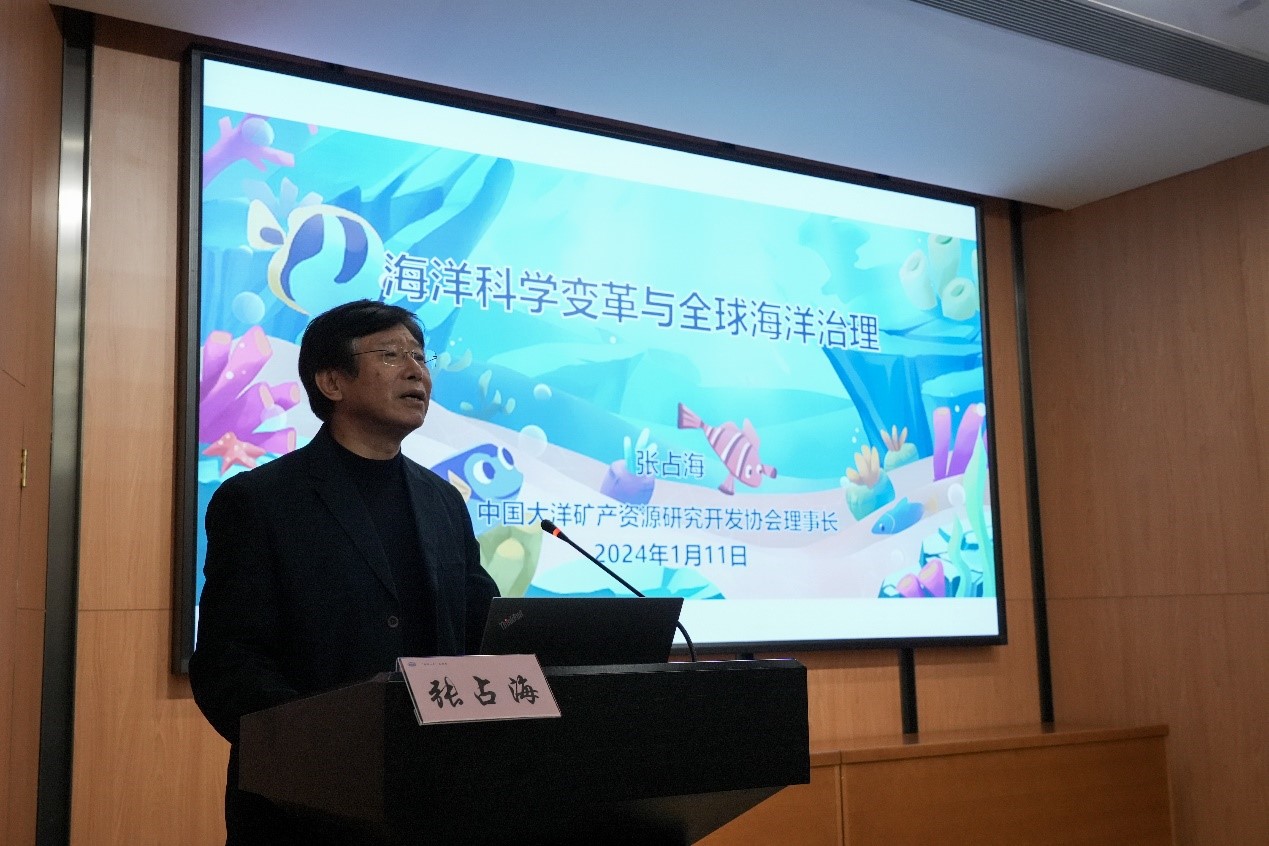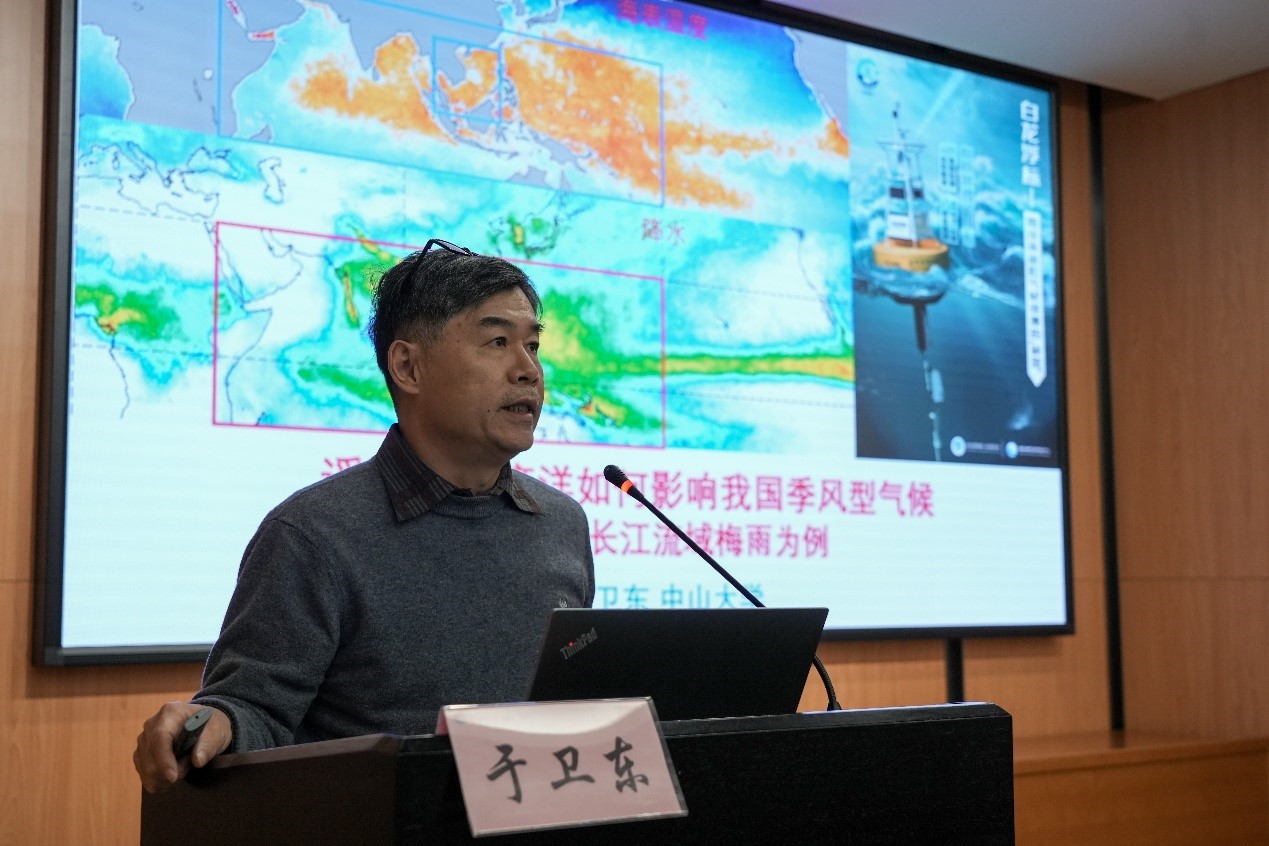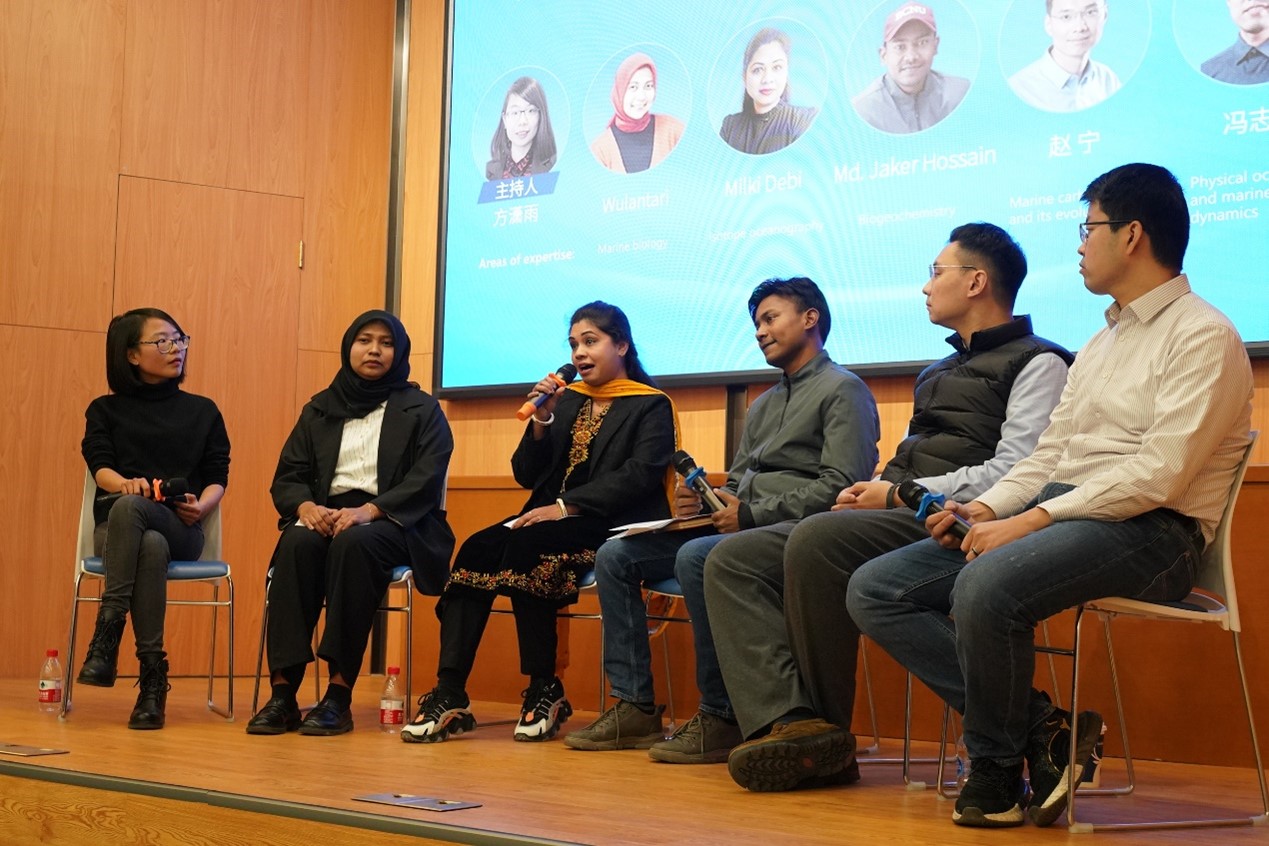The UN “Ocean Decade” campus event was successfully held at East China Normal University on January 11th, attracting active participation from university students and young researchers. The event was jointly organized by the UN Decade Collaborative Center on Ocean-Climate Nexus and Coordination Amongst Decade Implementing Partners in P.R.China (DCC-OCC), in collaboration with East China Normal University’s State Key Laboratory of Estuarine and Coastal Research (SKLEC), the UN “Ocean Decade” endorsed programme Mega-Delta, and Future Earth Coasts. Utilizing diverse formats such as lectures and interactive roundtables, the event effectively conveyed the fundamental principles of the “Ocean Decade” while simultaneously cultivating increased interest and engagement among both students and faculty towards the ocean.


The two captivating lectures, one by Zhanhai Zhang, Chairman of the China Ocean Mineral Resources Research and Development Association, delving into “Revolutionizing Ocean Science and Global Ocean Governance,” and the other by Professor Weidong Yu from Sun Yat-sen University, focusing on “How the Distant Indian Ocean Affects the Monsoon Climate in China — A Case Study of the Yangtze River Basin’s Summer Precipitation.” Zhang introduced the global vision, goals, challenges, actions, and recent progress of the “Ocean Decade,” providing rich knowledge and insights for the young researchers and university students participating. Professor Yu’s presentation focused on the impact of the Indian Ocean on summer precipitation in China’s typical monsoon climate. His presentation not only contributed to the progress of planning and developing the Indian Ocean oceanographic observation system but also provided substantial observational and scientific backing for sustainable development, thereby enhancing the understanding of the vital role the Indian Ocean plays in China’s climate.

The Interactive Roundtable “Empowering Early-Career Researchers (ECRs) in the UN Ocean Decade” fostered productive discussions regarding the pivotal role of ECRs in advancing the objectives of the UN Ocean Decade. Five ECRs from SKLEC shared insights on essential skills for navigating marine science challenges, explored the impact of their research on ocean sustainability, and expressed expectations for future endeavors in their respective fields. In the discussion, participants emphasized the importance of collaborative efforts between researchers in different fields to foster a comprehensive understanding of ocean ecosystems. “The roundtable provided a platform for young scientists to exchange ideas, with young individuals from different countries and fields sharing their stories. It gave us the opportunity to sit down, contemplate, and discuss how our research can contribute to goal of UN Ocean Decade” said Ning Zhao, a young researcher who participated in the roundtable. Regarding the role of technology, such as AI, in advancing ocean science in the next decade, participants agreed that AI holds exciting possibilities for the next decade in advancing our understanding of ocean science. Staying attuned to these developments will be crucial in steering the course toward a more informed and effective approach to ocean science and conservation. Young researcher Zhixuan Feng summarized, “The youth are the future of marine science and an indispensable part in the implementation of the United Nations Ocean Decade. This roundtable session encouraged diverse voices from around the world, fostering exchange and mutual learning. ”
This campus event sparked enthusiasm and garnered attention from academia and young researchers, infusing new vitality and motivation into nurturing a generation of scientists passionate about marine affairs and dedicated to sustainable development.
